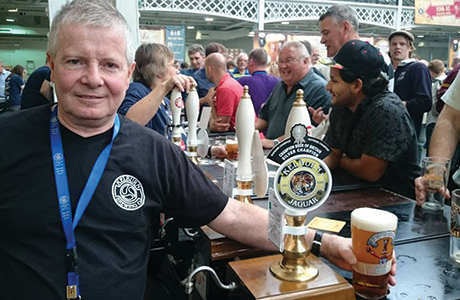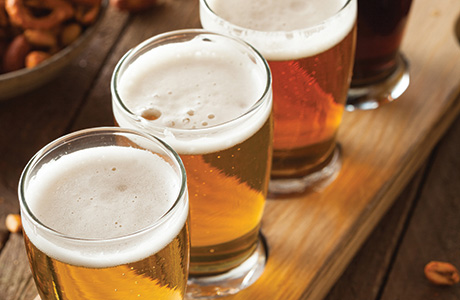Real ale is a valuable asset for pubs, says award-winning firm

By Dave Hunter
AS the growth in US-style craft beers continues, an award-winning central belt brewer is determined to stick to its cask ale culture.
Barrhead-based Kelburn Brewery, founded by the Moore family in 2002, is one of the few local brewers that can claim to have witnessed the turbulent times of the past two decades in Scottish brewing first-hand.
The early years of the 21st century were a very different time, in beer terms, to the present day. According to office manager Karen Moore, while there was less competition in 2002, there was also less demand for locally-produced beer.
“When we started there were only 30 breweries in Scotland,” said Karen, who runs the business with dad Derek and brother Ross.
“In some ways it was easier back then because there weren’t as many breweries and so people were keen to try new stuff. But on the other hand there wasn’t such a demand for it back then. There wasn’t the ‘craft beer boom’. So it was swings and roundabouts.”
Kelburn quickly established itself as one to watch in the cask ale world by winning ‘beer of the festival’ during its first appearance at the Paisley Beer Festival.
That early award win would be followed by many more in the coming years, and the office of the brewery’s Barrhead base is now covered in trophies and plaques from the UK and overseas.
These successes helped to grow the brewery’s reputation at a time when the demand for real ale in Scotland was also growing.
Karen said: “There’s more pubs selling real ale now, and more demand for it, but a pub that used to take our beer every two weeks might now take it every six weeks, because there’s so many other ones out there now. And fair enough, customers want to try different beers – they don’t want the same thing every week.”
The answer to this problem?
“Get more pubs to sell real ale, I guess, and more people to drink it,” said Karen.
“Just try and promote it as much as we can. That’s ultimately the solution: drink real ale.”
And even as the trade is inundated with new beers from across the UK and overseas, cask ale continues to offer a point of difference to pubs, said Karen.
She insisted that cask beer, when properly looked after, will encourage customers to return to a premises.
“Myself, as a customer, I will go into pubs that sell real ale more than pubs that don’t,” said Karen.
“To me it’s a sign of a good pub, because I know that’s a good quality thing to sell. Even if I’m going out for lunch and I’m not drinking I’ll still think that’s probably a good pub if it sells real ale.
“If you do look after it people will come back, and more and more people are looking for it. I definitely think you should give it a try; it’s not as scary and as difficult as it might seem.”
And while she swears to being “less gung-ho” than dad Derek on the subject of craft beer, Karen does take issue with ‘craft’ as a catch-all term.
“Basically anyone can call their beer craft,” said Karen.
“It doesn’t mean anything. When you’ve got big, massive companies producing craft beer it kind of takes away from it. To me, ‘craft’ means a little small company like ourselves, where it’s more hands-on, a more traditional approach. I don’t really like the term too much myself, either.
“But it has helped in some ways, because the whole craft beer boom has obviously spread across the world.
“Everyone wants craft beer.”























